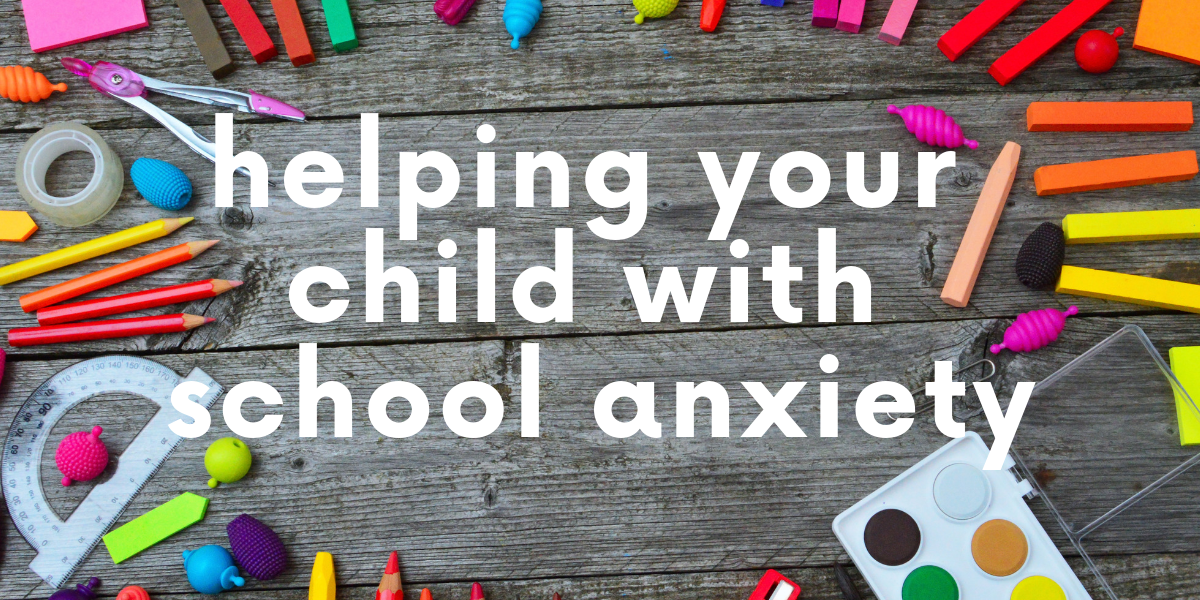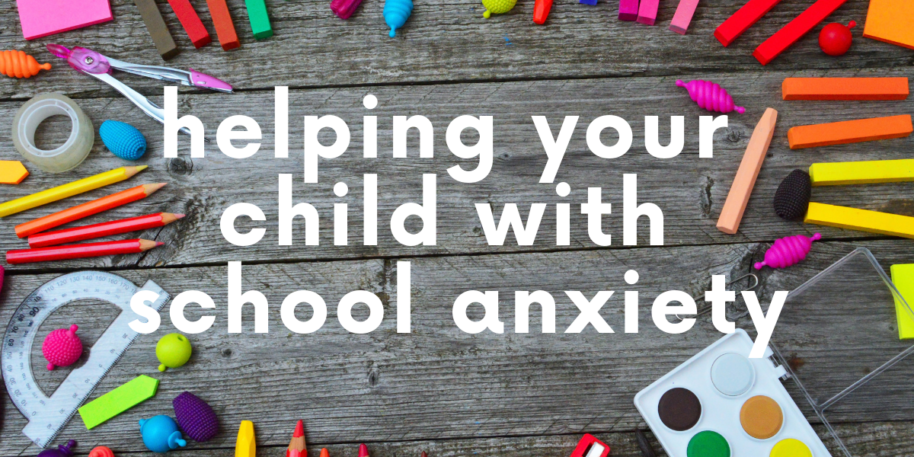It’s back to school time for students in the area. While students mourn their final days of break, anxiety is awaking from its summer slumber with a fresh set of “what ifs”. Soon, they’ll begin creeping into the minds of students and creating new worries or resuscitating old ones.
What if I don’t know anyone in my class? What if I don’t like my teacher? What if I get sick? What if I get lost? What if I have to speak in class? What if someone speaks to me? What if I get an answer wrong? What if I’m late and all the seats are taken? What if I miss my bus?
So yeah, welcome back to school.
While you cannot save your child from anxiety, you can help them think and relate to their anxiety differently. Here are some tips for doing so.
Create Empathy
It’s easy for you and I to lose touch with the anxious experience of going back to school. After all, we’ve clearly survived it and moved on to new anxieties. The fact that we have survived our children’s current anxiety does not make that anxiety any less valid for them, however.
In fact, the physical feeling of worry does not change as we age; only the content changes. The worry you feel about paying bills today feels the same as the worry your child might feel about going back to school.
In order to help your child manage their anxiety, you need to be willing to acknowledge it’s validity. We must remember what it’s like to not know who you’ll sit with a lunch or to imagine everyone is noticing the way you sit in class.
Reassure Sparingly
Anxiety is often described as an inability to tolerate uncertainty. It tricks us into spirals where we hurl logical arguments as it shifts with new and more clever, “yeah, but what if”statements.
It’s easy as adults to try reassuring our children that their fears are unlikely and ultimately small in the grand scheme of life. After all, we’ve survived it and know that things will probably be okay in the end.
We say things like, “it’ll be fine”, “you don’t need to worry”, “that won’t happen”, etc. I’ve got bad news though. Anxiety doesn’t actually care about our logic. Anxiety and logic divorced in the brain many years ago and remain terrible communicators.
Don’t let yourself get into a logic fight with anxiety by trying to reassure the unlikelihood of something happening. If you’re going to reassure your child, reassure their ability to cope rather than their ability to avoid.
Get to Action
Anxiety is a tool our body uses to help us make decisions. When we reassure something likely won’t happen, we are focusing on something ultimately not guaranteed and also out of our control.
Try to stay away from these kinds of reassurances:
- “Don’t worry, you won’t get anxious tomorrow.”
- “Don’t be nervous about that, no one will call on you.”
- “I’m sure you won’t get lost trying to find your class.”
- “I’m sure you’ll be able to find a place to sit in the lunchroom.”
When we make these statements like this, we’re inadvertently saying, “you’ll be fine because these things won’t happen”. That’s essentially the same threat anxiety has been making them this whole time (“you’re screwed if this unlikely thing happens!”). It’s also not something any of us can be sure of.
We want our kids to know they’ll be okay because they can handle hard things and not because they will probably get lucky by not having bad things happen.
Here’s what you might try instead:
- “That would be nerve-wracking. It might not happen, but if it does, what would you like to be able to do in that moment?”
- “Yikes, I remember that feeling. How would you like to be able to handle that if it does happen?”
It’s important that you change the tone of the conversation about anxiety. We want to have a discussion about our child’s skills rather than their luck.
This is also when you might suggest things like breathing exercises, positive self-talk, mindfulness practices, or any other appropriate skill that helps your child tolerate distressing moments.
Build on Past Experiences & Engage Strengths
The truth is, your child has probably done hard things before and you need to capitalize on this. Anxiety often represents a lack of confidence to manage uncertainty more than a realistic fear.
You might ask your child to recount a time when they felt anxious before. You might ask about moments when they felt scared, sad, worried, etc.
Use these moments to engage your child in a conversation in what they expected would happen and what actually happened. Ask how they were able to manage the situation and what they hope to take from that situation now.
The goal here is to create a strength based conversation around anxiety rather than a failure/fear based conversation.
Celebrate Effort, Not Luck
The overarching goal in helping our children manage anxiety is to increase confidence in their ability to tolerate distress. To achieve that, it’s important to spend time celebrating efforts to confront and challenge anxiety.
- Make an intentional effort to note how proud you are of their courage.
- Make note of the fear they faced head on.
- Let your child know you’re excited about the way they pushed against their anxiety without knowing what would happen.
- Ask them about what anxiety told them to do and how they “talked back” to anxiety. (Parents, a little sass isn’t a bad thing here.)
- Question them on what they learned and how they would like to apply that next time
Summary
Anxiety needs us to be fearful and indecisive. It wants us to believe we’re only okay if something does not happen and we unintentionally strengthen the anxiety by trying to logic anxiety away (“that probably won’t happen”).
Instead, we want to help our children learn they are okay even if an anxious things happens not because they can usually avoid those things.
We can do this by:
- Empathizing with their experiences
- Reducing our reliance on logic reassurances
- Helping change the conversation to their skills
- Remembers past experiences and challenges
- Encouraging effort and willingness to confront anxiety
About Ben
Ben Taylor is a counselor in Johnson City, TN. He provides counseling for adolescents, adults, and couples. He specializes in treating Anxiety related concerns including OCD, Panic, Social Anxiety, and PTSD. He also works closely with couples seeking to increase effective communication, navigate infidelity, and rekindle past romances.
When you’re ready to experience counseling that moves you towards your ideal self or relationship, email Ben by clicking below.

